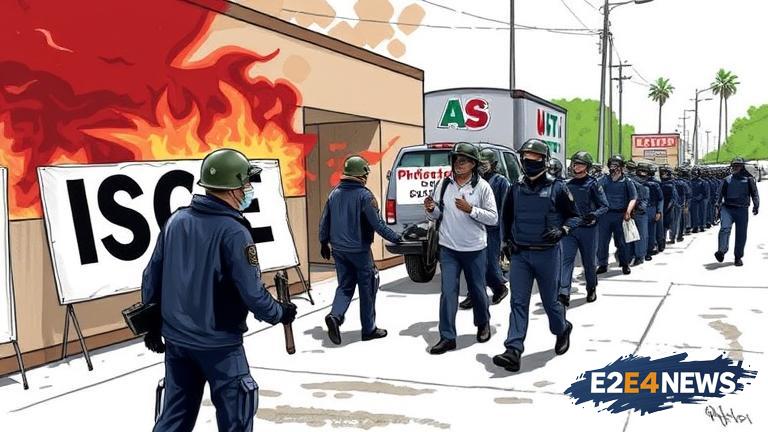In a significant development, a federal judge has intervened to block Immigration and Customs Enforcement (ICE) from carrying out large-scale raids in Los Angeles and Ventura counties. The ruling, which was handed down in response to a lawsuit filed by the American Civil Liberties Union (ACLU) and other advocacy groups, marks a major victory for immigrant rights activists. The judge’s decision was based on concerns that the raids would violate the constitutional rights of individuals, including their right to due process and protection against unreasonable searches and seizures. The ACLU had argued that the raids would lead to the detention and deportation of individuals without adequate notice or opportunity to challenge their removal. The judge’s ruling also highlighted the importance of protecting the rights of all individuals, regardless of their immigration status. The raids, which were scheduled to take place in the coming weeks, would have targeted individuals with final orders of removal, including those with criminal convictions. However, the judge noted that many of these individuals may have been unaware of the orders or may have had valid claims for relief that were not properly considered. The ruling has been welcomed by immigrant rights groups, who have long argued that ICE raids are often conducted in a manner that is arbitrary, discriminatory, and inhumane. The decision is also seen as a significant setback for the Trump administration, which has made immigration enforcement a top priority. The administration has been criticized for its aggressive approach to immigration, including the use of large-scale raids and the separation of families at the border. The judge’s ruling has sparked widespread relief among immigrant communities in LA and Ventura counties, who had been living in fear of the raids. However, the decision is likely to be appealed by the government, and the issue is expected to continue to be contested in the courts. The ruling has also highlighted the need for comprehensive immigration reform, which would provide a pathway to citizenship for undocumented immigrants and address the root causes of migration. The issue is complex and multifaceted, and will require a nuanced and bipartisan approach to resolve. The judge’s decision has been hailed as a major victory for the rule of law and the protection of human rights. It has also underscored the importance of an independent judiciary in checking the power of the executive branch and protecting the rights of vulnerable populations. The ruling is likely to have significant implications for immigration policy and practice, both in California and nationally. As the issue continues to unfold, it is clear that the struggle for immigrant rights will remain a major focus of social justice activism and advocacy in the months and years to come.
